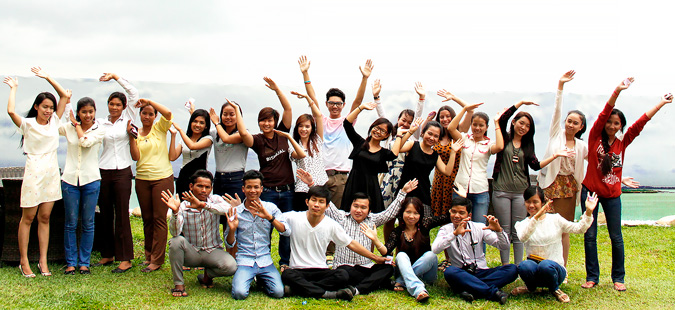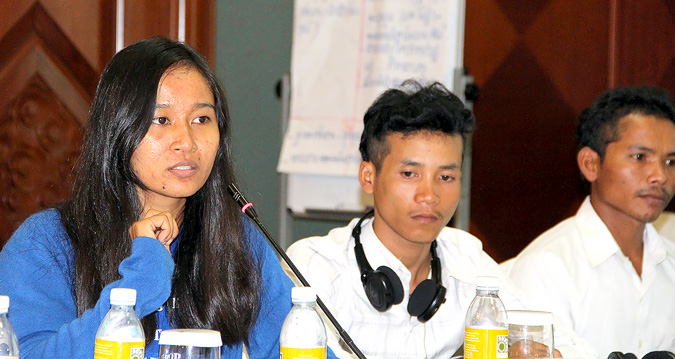Youth getting integrated in the election process
Date:
Author: Mariken Harbitz
Phnom Penh, Cambodia - Thirty young women and men from 20 different youth organisations came together to learn how they can play a part in the election process, before meeting national parliamentarians.

“Cambodian youth are very active in spreading the message of gender equality to different audiences,” said UN Women Youth and Gender Equality Officer, Sinet Seap, leader of the three-day training: Gender and Youth Impacts of the National Election Law. “They are also pivotal for engaging with the people who are living in remote areas,” she added.
Cambodia has one of the largest youth populations in South-east Asia. A 2014 United Nations report shows that the country is experiencing a demographic shift, with more than 4.7 million – approximately one-third – of the population aged 10-24 years.
During the training, participants analysed laws and learned how to integrate gender and youth perspectives into legislation. "I had no idea about the gender perspective and how to include it in laws," said political science graduate Mey Vuthy, 28, from the Kandal Province, 25 km outside Phnom Penh, representing the Youth Resource Development Programme. "This workshop was a good opportunity for youth to come together, and build capacity to learn how to analyse the law," said Vuthy.
All participants had to come up with their own recommendations on how the law should be revised to include a gender perspective. One of the objectives of the training was to enable young activists to address members of parliament with their concerns, hence, it included role-play exercises between civil society representatives and the national parliament.

“Trainings like this, with a direct outcome such as a dialogue with the parliament, is very important for Cambodian youth,” said Sothida Ros, a 27-year-old legal and human right trainer, from Phnom Penh working on young human rights since 2012. “There are more women than men in Cambodia, and most of them are young women. But it seems like they have less and less opportunities in society. Why are women participating on such a low scale?”
Ros also noted that the training was challenging. “On the first day, we got an introduction to the gender analysis, then boom, we had to do a gender analysis completely on our own,” she added.
By the end of the session, the participants had to identify five key messages that they would like to highlight when meeting the parliamentarians. The identified messages focused on the importance of having a transparent election process, a demand for the voices of women and men to be equally heard, the need to guarantee access to information as an imperative for a democratic electoral process and lastly the role of the youth and civil society in promoting people’s participation in the election.